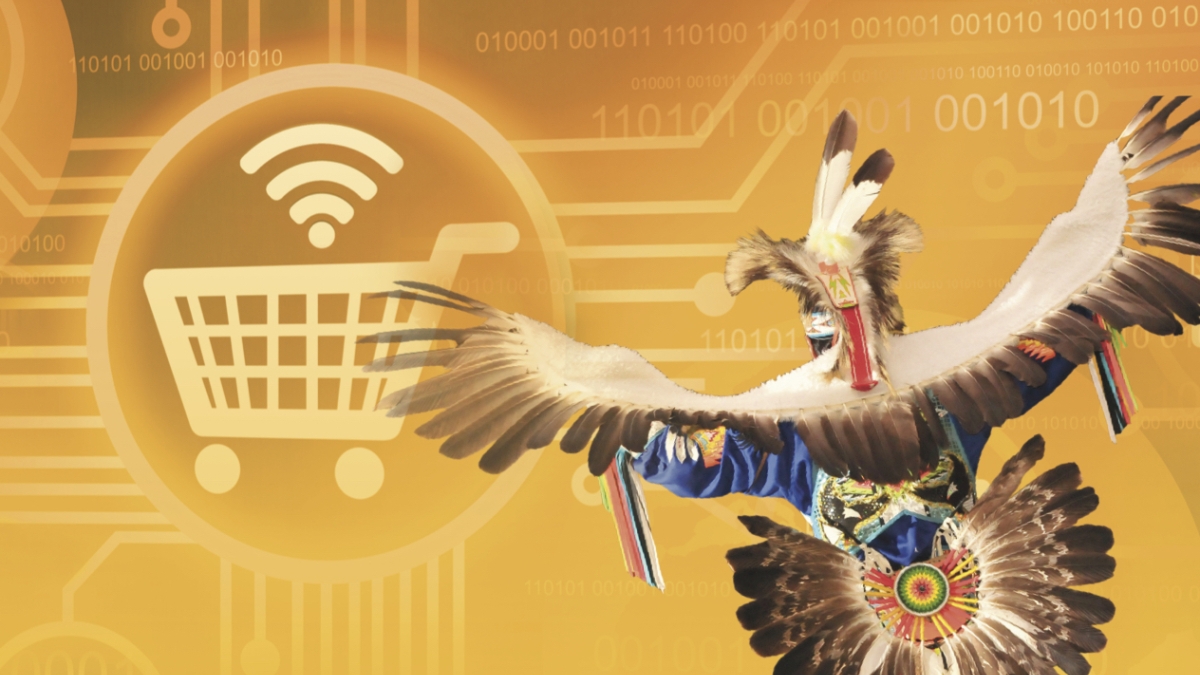With the growth of e-commerce and other assets that can be earned through the internet, Indian Country is no longer bound to geographic borders.
Tribal governments have enormous opportunities to grow their economic-development abilities through their sovereignty, including web-based businesses, sports betting, tax initiatives, blockchain and a multitude of new industries.
That’s the goal of the “Wiring the Rez: Innovative Strategies for Business Development Via E-Commerce" conference, which is specifically geared to tribal governments, indigenous businesses and Native peoples. Offered through Arizona State University’s Sandra Day O’Connor College of Law and the Indian Legal Program, the conference will take place Jan. 31–Feb. 1 on the Gila River Indian Reservation.
ASU Now spoke with Robert J. Miller, a professor at the Sandra Day O’Connor College of Law and the faculty director of the Rosette LLP American Indian Economic Development Program, ahead of the conference.
Robert J. Miller
Question: Why the need for this conference, and what do you hope participants will get out of it?
Answer: This is our fifth annual Wiring the Rez conference at ASU College of Law. We have begun to focus more heavily on economic-development issues in our Indian Legal Program because American Indians are the poorest people in the United States. On reservations and Indian lands, more families live below the poverty line than any other Americans. Unemployment can reach as high as 80 to 90 percent on some reservations, and most reports state that unemployment averages 50 percent on the 300-plus reservations across the United States. Indian peoples are also the least educated, with the shortest life spans, and with the poorest health and housing conditions for any identifiable group of Americans. The need for economic development of any and all kinds is self-evident in light of these facts.
Much of the American economy today is based on the internet and e-business, so it is only natural that Indian nations and tribal communities should look to improve the e-commerce conditions in Indian Country for tribal governments and Indian entrepreneurs. On the flip side, though, some tribal governments have succeeded very well at "regular" economic-development activities, and some reservations are becoming more prosperous due to tribal economic activities and gaming. Yet every economy needs diversification, and even for those successful reservations, where the standard of living has risen, tribal governments and reservation economies need to diversify their economic activities and “thicken” and thereby strengthen their economies. E-commerce is a natural candidate for economic expansion in the 21st century.
Conference participants will be exposed to new ideas about how tribal governments and Native entrepreneurs can better access the web and can better profit from business conducted online. Our conference attendees also benefit from networking with tribal representatives and Indian business people at such gatherings.
Q: E-commerce, as you have stated in your literature, has helped to create thriving economies on a few reservations, but has also led to a complicated tangle of legal issues. Give us an example of the legal issues that tribes face?
A: One of the first legal issues that Indian nations face is the federal “trust responsibility.” The United States plays an important and sometimes overwhelming role in Indian affairs, including in economic activities. So one of the legal issues that tribal nations have to deal with is the paternalistic role of the United States and the various federal approvals and laws that must be complied with to engage in many businesses on reservations. Some tribes have also encountered state interference with business activities such as gaming and e-commerce, and all tribes face the question of state competition and jealousy over successful tribal businesses. While these last two points are not specifically legal issues, they do become legal issues when dealing with states and fighting over jurisdiction and power, which includes subjects like the power to tax. Jurisdiction, regulation and taxation are definitely legal issues that tribal governments and individual Indians have to navigate with federal, state, county and city jurisdictions.
Some tribes have done very well in the e-lending world, and they have faced questions of both state competition and federal and state control. Ample litigation has ensued over this particular business activity, and our conference will discuss many of these pending cases.
Q: What are some of the other real-life issues that some tribes face as they look to get wired to the internet?
A: Due to the trust relationship that I mentioned above, and the fact that the United States is the legal owner of a lot of the land within Indian reservations, the United States has approval authority over various land leases and development projects that can involve issues concerning telephones, cable and internet. I do not think this has been much of a problem, however.
A much larger problem is the fact that Indian Country and Indian families are still grossly underserved by the internet. Somewhat similar to rural America, Indian Country lacks access to the best and highest-speed internet and the best telephone service. A 2018 Federal Communications Commission report demonstrated that more than 1.2 million residents of tribal lands lack access to high-speed internet! Extrapolating from those numbers infers that the FCC found that nearly every Indian living on any reservation lacks high-speed internet. In today's modern world, this is both highly regrettable and — in light of the federal trust responsibility for Indian nations and Native peoples — highly inexcusable. How can one function in the modern day and in the modern business world without access to high-speed internet and telephone connections that help "smart" phones really be "smart" and business people and economies on reservations conduct business efficiently, effectively and profitably?
Q: What are some of the unique e-commerce you’re seeing come out of the reservations?
A: I am of course not aware of all the e-commerce that Indian nations and individuals are engaged in. But I do know that some tribes are doing very well in the e-lending business, for example. Other tribal enterprises are working in the internet technology field itself, such as Cayuse Technologies, which is owned by the Confederated Tribes of the Umatilla Indian Reservation in northeastern Oregon; the Cherokee Nation of Oklahoma's Cherokee Nation Technologies; and the Navajo Nation's DDC IT Services.
Furthermore, most of the thousands of Indian entrepreneurs and artists across the United States obviously use the web to promote and sell their products. For examples, I would note Native American Natural Foods, LLC, Tanka Bars; Bethany Yellowtail; Beyond Buckskin Boutique; Tribal Tech; and a platform for indigenous artisans, SOLVE.
Q: What is the future of Native entrepreneurs and e-commerce?
A: As for all Americans, our future seems to be intimately connected to the internet and e-commerce and e-life. Indian nations, Indian entrepreneurs and reservation economies must get fully connected and fully involved in the current, and the emerging, e-universe. Rural Americans and Indian peoples on reservations deserve the same access to the internet as all other Americans, and they must aggressively pursue their rights in this arena and the options available to make rural and reservation areas more prosperous and sustainable. I honestly believe that the future of Indian reservations as tribal homelands and the sustainability of tribal cultures depends on increasing the income levels and the living standards in Indian Country. The ASU Indian Legal Program's Wiring the Rez conference is a good step in that direction.
For more information on the Wiring the Rez conference, visit ASU Events.
More Law, journalism and politics

TechTainment conference explores the crossroads of law, technology, entertainment
What protections do writers, actors, producers and others have from AI? Will changing laws around name, image and likeness (NIL) eliminate less lucrative college sports?And what does the No…

How to watch an election
Every election night, adrenaline pumps through newsrooms across the country as journalists take the pulse of democracy. We gathered three veteran reporters — each of them faculty at the Walter…
Law experts, students gather to celebrate ASU Indian Legal Program
Although she's achieved much in Washington, D.C., Mikaela Bledsoe Downes’ education is bringing her closer to her intended destination — returning home to the Winnebago tribe in Nebraska with her…

